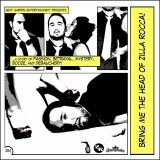Thank you very much and, for now, siyonara
 It’s four-thirty a.m.; I’m sprawled across a tatami mat in a Tokyo guest room. My friend Evan and my friend’s friend James are five feet away, having a dialogue of snores. Whenever I burp, I can still taste the tangy brown sauce and salty fish flakes of takoyaki. A bottle of lychee-flavored sake’s sloshing around my stomach. I toss again across the narrow futon cover, trying to will my body into sleep. But when that proves pointless, I slide on my headphones instead. I drone “Tokyo” by the Books on repeat, feeling closer to the song than ever. Its fevered energy, its studied loveliness, its conflation of the traditional and the avant have always affected me. In Japan however, it makes a whole new level of sense. Because Tokyo is a strange and complicated city, a foreign place in every sense of the word. When Evan and I walk through James’ neighborhood of Monzen-Nakacho, people inevitably stare. White people are a rarity here, and at six-three, bleached-blonde, and sporting a sleeveless tee, Evan is even more of a sight. The locals are still unfailingly polite, kind almost to a fault. Looking down, they’ll apologize instinctually. The women we’ve encountered are largely as demure as the stereotype suggests. It’s a culture ruled by respect and rooted in gentility. It’s a city where no one locks their bikes and a kind voice reminds subway riders to turn off their cell phones. And yet Tokyo’s also a place with a relentless pulse. Like me, it’s nocturnal; twenty-four-hour stores and ubiquitous vending machines filled with energy drinks and iced coffees light up most streets. Hubs like Shinjuku and Shibuya (home to the world's busiest intersection) bustle with an indiscriminate mix of businessmen, tourists, students and barhoppers. Signs for fast food joints glow with ads for fried shrimp burgers and aloe shakes. Headache-inducing chaos thunders out of pachinko parlors, where manic machines try to outscream each other. In the younger version of the parlor, the arcade, teenagers congregate under thickets of smoke. They try to snag painfully cute stuffed animals between the claws of UFO catchers. They unleash breathless rounds of artillery and explode planets in row after row of video game consoles. Tokyo, it must be noted, is also a temple of food. As indelibly linked to its eats as New York or Rome or Paris, the city has a staggering quantity of restaurants. Many of the options are modest, offering comfort foods like udon soups and tonkatsu. (In keeping with the love of technology, these places often have automated push-button ordering instead of waiters.) However, the Japanese take their meals seriously too, even with the classics. When Evan and I visited the top-ranked ramen shop in Tokyo, an eight-seat corridor hidden on a back alley in a low-key neighborhood, the line was an hour long. When we visited the famous Tsujiki market, where fishmongers unpacked enormous heaps of fresh and frozen seafood at five a.m., sushi purveyors were already shopping for their daily supply. At six-thirty a.m., two blocks away, we were already eating horse sashimi, mantis shrimp, disk abalone and other exotic cuts I’d never encountered. A few days before, that idea would’ve seemed weird, but in Tokyo, it just felt like natural worship. I’ve never felt as much like an outsider anywhere outside of Tokyo’s unyielding streets. Without any grasp of the language, reduced to pointing randomly at menus, adrift in the subterranean tunnels of malls and stations, I never forget my alien status here. I’m permanently an observer and a tourist, on the high-speed fringes of a society that’s still deeply adapting to changing times. It’s a refreshing deviation from my usual life, where everything feels like a given. Eventually, around the fifteenth time “Tokyo” rolls around, I admit I’m too wired to sleep. Leaving behind the music and the cappuccino-maker snores, I head onto the balcony. I survey the outskirts of the city at dawn, the sky the shade of a blue still gaining courage. Across an ocean, I’ve seen this moment a thousand times, but here in Tokyo, it feels like the city itself—close but distant, humble but awing, as old as history but also brand new. * MP3: "Tokyo" - The Books from The Lemon of Pink [Buy it] |





















Comments on "Thank you very much and, for now, siyonara"
-
 Anonymous said ... (10:41 AM) :
Anonymous said ... (10:41 AM) :
post a commentThat sounds incredible. THe closest I've been to understanding that feeling you've talked about in this blog is when I watched "Lost in Translation." Enjoy yourself, brother.